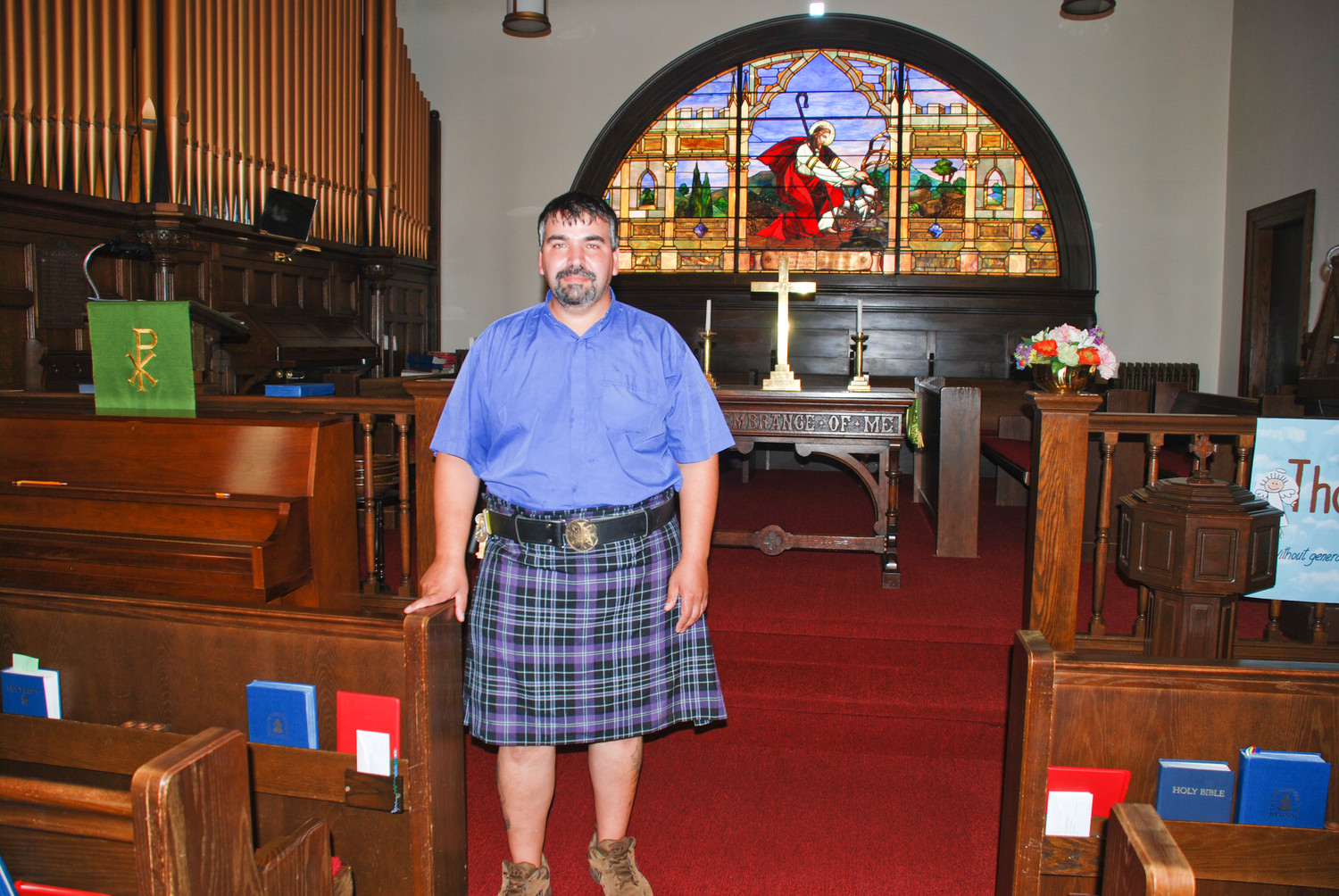‘The worship is over. Let the service begin.’
First Presbyterian Church of Oceanside gets new pastor
“You’ve heard ‘There but for the grace of God go I’?” asked Reverend Ross, adding, “Yeah. We’ve tested that grace more than once.”
A few inches below the hem of his purple tartan kilt, there was an angel tattooed on each of his calves, “I’ve always felt really protected, and really guided,” Ross said, pointing first to the guardian angel, and then to the guiding angel.
A call to serve at the First Presbyterian Church of Oceanside guided him out of Sterling, N.Y., near Lake Ontario. Ross said he was really enjoying his new Long Island home. “On the whole,” he said, “we’ve found people to be very nice. It’s not a closeted community.”
Ross said that living in a less rural area had its perks. “Well there’s a sidewalk, for one thing,” he said, which meant that his daughter, a first grader at School No.3, could ride her bike to school, whereas before she had to endure a nearly hour-long bus ride.
Ross said that he was concerned about whether his kids would be able to make friends, since a lot of their potential playmates would have already known each other for a few years. But he quickly discovered that they would do just fine. “They’re already setting up playdates and things like that,” he said.
“You don’t have white hots and salt potatoes,” Ross said of his chief complaint of living downstate. White hots are a type of hot dog made from pork and milk, he explained. When pressed that Long Island did, in fact, have salt potatoes, Ross, gently but firmly, replied, “No. You don’t. You have potatoes you put salt on.”
In terms of his new stewardship, Ross said that he’s still talking it over with the church leaders. “Based on our conversations, the church is looking to move forward and to be a little more open. What that means? That’s the big question that we’re working on.”
Ross said that he wanted his new role to incorporate a partnership with the congregants, but was unambiguous about leaving his mark. “The first week I was here,” he said, “I changed their bulletin, and in the insert, I explained each change and invited anyone to come to me with their questions or concerns.”
One of those changes struck at the heart of one of Ross’s guiding philosophies about what the function of a church should be. “At the very end of the bulletin” he said, “I put, ‘The worship is over. Let the Service begin.’” According to him, church is a way “to teach us and train us for the rest of the week… a weekly reminder of what we should be doing.”
He spoke of the fact that when religion, and prayer in particular, are too formal it creates obstacles to praying outside of church. “Just have a conversation with God,” he said, adding, “It can be a simple thing.”
Ross also questions whether the interpretation of the bible should be formalized. “I don’t believe the bible is meant to be a closed statement,” he said, explaining “As events occur around us, the way the verses land on us changes, the meaning changes.”
Ross said that he felt a calling to religious service at a young age, and though he was raised Catholic, there were certain aspects of the Catholic Church that gave him pause, like the fact that women could not be priests.
But now, he said, he’s certain he’s in the right place. “I wake up in the morning happy, and I go to work happy, and so I know I’m doing the right thing.”

 49.0°,
Fog/Mist
49.0°,
Fog/Mist 




